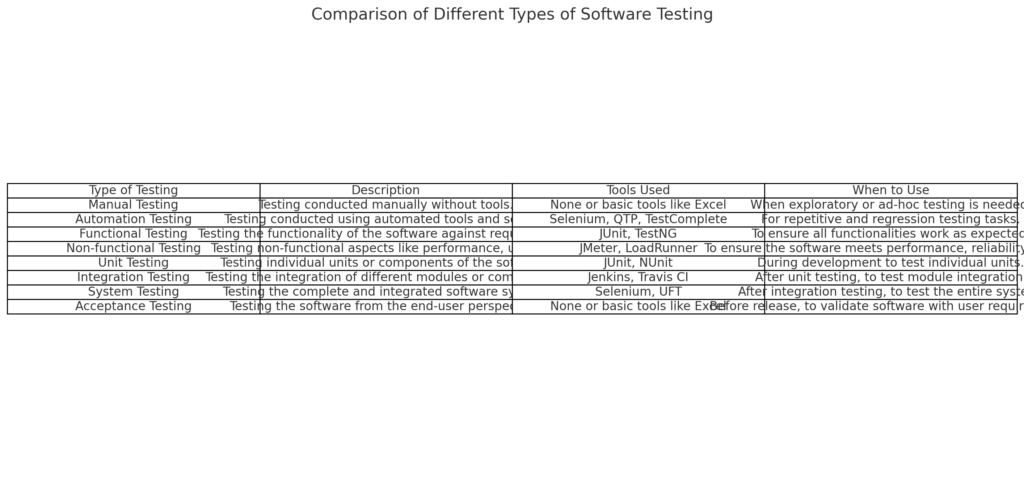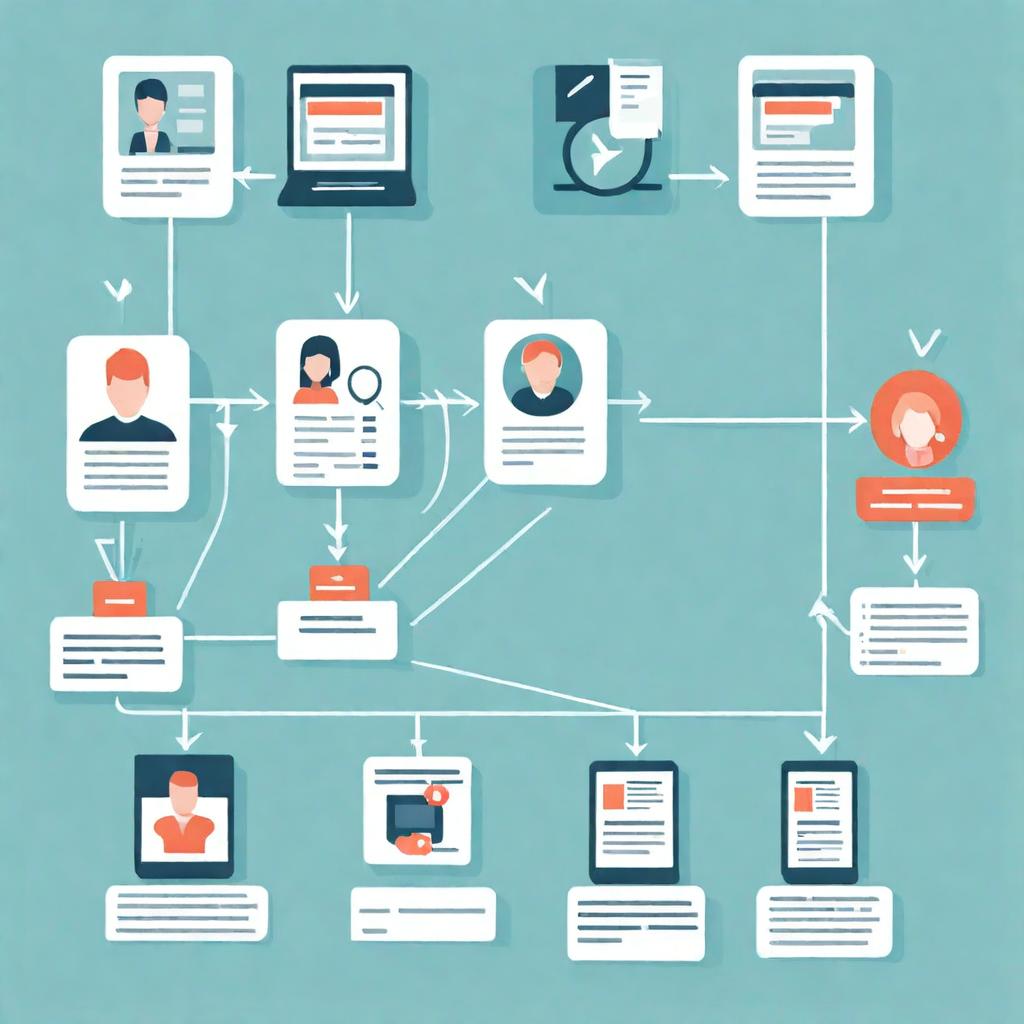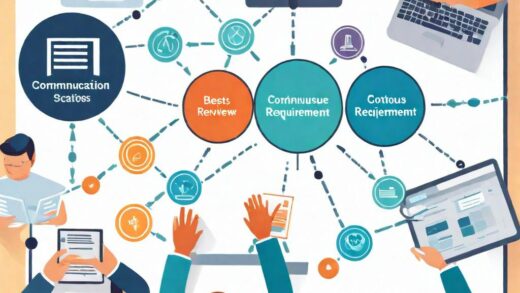Preparing for a software testing interview can be a daunting task, especially with the wide array of topics that can be covered. This comprehensive guide is designed to help you navigate through the most common and critical software testing interview questions. Whether you are a fresher or an experienced professional, this blog will provide you with the insights and answers you need to succeed.
Table of Contents
- Introduction
- Basic Software Testing Interview Questions
- Intermediate Software Testing Interview Questions
- Advanced Software Testing Interview Questions
- Behavioral and Situational Questions
- Conclusion
- Key Takeaways
- FAQs

Introduction
Software testing is a crucial phase in the software development lifecycle. It ensures that the software meets the required standards and performs as expected. The role of a software tester is vital in identifying bugs and issues before the software reaches the end user. Given its importance, interviews for software testing positions can be quite challenging. This blog aims to provide you with a curated list of questions and answers to help you prepare effectively.

Basic Software Testing Interview Questions
1. What is Software Testing?
Answer: Software testing is the process of evaluating and verifying that a software application or system meets the specified requirements. It involves executing the software to identify any gaps, errors, or missing requirements in contrast to the actual requirements.
2. Explain the difference between verification and validation.
Answer:
- Verification: It is the process of checking whether the software meets the specified requirements. It involves reviews, inspections, and walkthroughs.
- Validation: It is the process of checking whether the software meets the user’s needs and performs the intended functions. It involves actual testing of the software.
3. What are the different types of software testing?
Answer:
- Manual Testing: Testing of the software manually without using any automated tools.
- Automation Testing: Testing of the software using automated tools and scripts.
- Functional Testing: Testing the functionality of the software.
- Non-functional Testing: Testing the non-functional aspects like performance, usability, reliability, etc.
- Unit Testing: Testing individual units or components of the software.
- Integration Testing: Testing the integration of different modules or components.
- System Testing: Testing the complete and integrated software system.
- Acceptance Testing: Testing the software from the end-user perspective.
4. What is a test case?
Answer: A test case is a set of conditions or variables under which a tester determines whether a system or one of its components is working as expected. It includes test inputs, execution conditions, and expected results.
5. What is the difference between regression testing and retesting?
Answer:
- Regression Testing: It involves testing the entire application to ensure that changes in the code do not adversely affect the existing functionality.
- Retesting: It involves testing a specific defect or issue after it has been fixed to ensure that the issue is resolved.
Intermediate Software Testing Interview Questions
1. What is a test plan, and what does it include?
Answer: A test plan is a document that outlines the scope, approach, resources, and schedule of intended test activities. It includes:
- Test objectives
- Test scope
- Testing strategy
- Test environment
- Test deliverables
- Roles and responsibilities
- Schedule and timelines
- Risk and mitigation
2. Explain the V-Model in software testing.
Answer: The V-Model, also known as the Verification and Validation model, is a software development model that is an extension of the waterfall model. In this model, each development phase is associated with a corresponding testing phase. The V-Model emphasizes verification and validation activities in parallel with development.
3. What are test metrics, and why are they important?
Answer: Test metrics are quantitative measures used to estimate the progress, quality, and health of a testing effort. They are important because they provide insights into the effectiveness and efficiency of the testing process, help identify areas for improvement, and support decision-making.
4. Describe the difference between white-box testing and black-box testing.
Answer:
- White-Box Testing: It involves testing the internal structures or workings of an application, often done by developers.
- Black-Box Testing: It involves testing the functionality of the software without looking into the internal code structure, often done by testers.
5. What is boundary value analysis?
Answer: Boundary value analysis is a software testing technique in which tests are designed to include representatives of boundary values. Since errors often occur at the boundaries of input values rather than the center, this technique helps identify defects that might not be discovered by testing within the normal range.
Advanced Software Testing Interview Questions
1. What is a test automation framework?
Answer: A test automation framework is a set of guidelines, rules, and tools that help in the execution and management of automated test scripts. It provides a structured approach to automate testing activities and ensures consistency, maintainability, and reusability of test scripts.
2. Explain the concept of continuous integration and continuous testing.
Answer: Continuous integration (CI) is a practice in software development where code changes are automatically tested and merged into a shared repository frequently. Continuous testing involves executing automated tests as part of the CI process to provide immediate feedback on the quality of the code. This helps in identifying and fixing issues early in the development cycle.
3. What is exploratory testing?
Answer: Exploratory testing is an approach to software testing that is concisely planned and simultaneously designed and executed. Testers explore the software without predefined test cases, relying on their experience and intuition to identify defects.
4. How do you handle a situation where there are too many bugs to fix before the release date?
Answer: In such situations, prioritizing the bugs based on their severity and impact on the software is essential. Focus on fixing critical and high-severity bugs that affect the core functionality. Non-critical bugs can be documented and addressed in future releases. Communication with stakeholders is key to managing expectations and making informed decisions.
5. What is a defect life cycle?
Answer: The defect life cycle, also known as the bug life cycle, is the process a defect goes through from identification to closure. The typical stages include:
- New
- Assigned
- Open
- Fixed
- Retested
- Verified
- Closed
- Reopened (if necessary)

Behavioral and Situational Questions
1. Describe a challenging testing project you worked on. How did you handle it?
Answer: (Example Answer) I once worked on a project where we had tight deadlines and frequent requirement changes. I handled it by implementing an agile testing approach, maintaining clear communication with the development team, and prioritizing testing activities based on risk. Regular stand-up meetings and continuous integration helped in keeping the project on track.
2. How do you stay updated with the latest trends and technologies in software testing?
Answer: I stay updated by following industry blogs, attending webinars and conferences, participating in online courses, and being an active member of software testing communities. Continuous learning is key to staying relevant in the field.
3. How do you ensure that your testing is thorough and covers all scenarios?
Answer: I ensure thorough testing by creating detailed test plans, developing comprehensive test cases, and using a mix of testing techniques such as boundary value analysis, equivalence partitioning, and exploratory testing. Peer reviews and feedback also help in identifying any gaps in testing.
Conclusion
Preparing for a software testing interview requires a deep understanding of testing concepts, tools, and best practices. By familiarizing yourself with the questions and answers provided in this guide, you can confidently approach your interview and demonstrate your expertise in software testing. Remember, thorough preparation and a clear understanding of fundamental concepts are key to acing your next software testing interview.
Key Takeaways
- Software testing is crucial in ensuring the quality and functionality of software applications.
- Understanding basic, intermediate, and advanced testing concepts is essential for interview preparation.
- Familiarize yourself with common testing methodologies, tools, and techniques.
- Practice behavioral and situational questions to demonstrate your problem-solving and communication skills.
FAQs
1. What are the most common software testing interview questions?
Common questions include:
- What is software testing?
- Explain the difference between verification and validation.
- Describe different types of testing.
- What is a test case?
- What is regression testing?
2. How can I prepare for a software testing interview?
Prepare by:
- Reviewing common interview questions.
- Understanding fundamental testing concepts.
- Practicing hands-on testing scenarios.
- Staying updated with the latest trends and technologies.
3. What skills are essential for a software tester?
Essential skills include:
- Analytical and problem-solving skills.
- Attention to detail.
- Knowledge of testing tools and methodologies.
- Strong communication skills.
- Ability to work in a team.
4. What is the role of automation in software testing?
Automation helps in:
- Increasing efficiency and accuracy of tests.
- Reducing repetitive manual testing efforts.
- Ensuring consistent test execution.
- Providing quick feedback on code changes.
5. How do you handle defects discovered during testing?
Defects are handled by:
- Logging them in a defect tracking tool.
- Prioritizing based on severity and impact.
- Communicating with the development team.
- Retesting after fixes are implemented.
More about software testing interview questions: https://www.geeksforgeeks.org/manual-testing-interview-questions/
More Blogs: https://scriptedkiddies.com/


